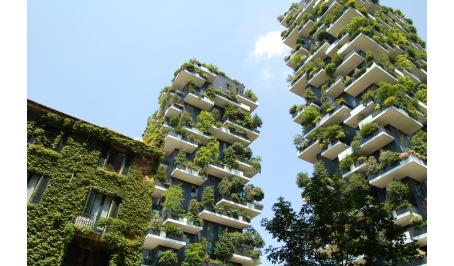- Membership
- The NY Chapter
- Our Career Services
- Committees
- National FACC Network
Meet the FACC Ambassador: Hervé Houdré, Founder of H2 Sustainability Consulting
Member news | January 03, 2020
Meet FACC Ambassador, Hervé Houdré, who has been called one of the greenest hoteliers in NYC and is an award-winning luminary through his work integrating sustainability into large, luxury, urban hotels.
Houdré has been one of the world’s strongest advocates of sustainable hospitality since the early 2000s, playing the role of a true-born Renaissance Man through his notable work as a hotelier, lecturer, author, and business person. In 2018, Houdré founded his own company, H2 Sustainability Consulting, where he helps define, integrate, and implement pertinent Sustainability strategies within a profitable business model.
Keep reading to learn more about Houdré's inspiring vision on Sustainability in today's modern world.


FACC: What is one of the biggest challenges that leaders in Sustainability are currently facing?
HH: In general, there seems to be a lack of genuine and efficient engagement from governments. What is happening at the federal level in the U.S. is appalling, but all over the world, we are seeing the same issues. Indeed, there are important declarations being made, however, there are so many lobbyist surrounding governments that these objectives are not materializing, and the required laws are not voted on and if they are, they are not enforced. The role of governments at all levels is to guide and structure the fight against climate change and global issues.
In September 2015, the United Nations issued Sustainable Development Goals (SDGs) which represents a blueprint for governments, companies and NGOs to achieve a better and more sustainable future and align their efforts. On the contrary, other than reoccurring conferences that do not accomplish very much, the SDGs and their recommendations are not highly recognized.
FACC: In your opinion, what is the biggest difference on how American and French people view sustainability and its importance to our future?
HH: America is very late in the game for a good reason. European countries are small, and they faced ecological issues much earlier on than America. Here, landfills are hundreds of miles away from cities and do not represent a direct ecological issue, therefore, they were never in the "backyard” of residents in large cities.
Europeans were quicker to integrate the right attitude and initiatives. For instance, in the mid-80s, the supermarket in my small Loire Valley town stopped offering plastic bags and encouraged customers to bring reusable bags. Likewise, New York will impose that same initiative in March 2020.
Europe just signed the EU Green New Deal which aim is to make Europe carbon neutral by 2050. It is a very ambitious plan and it still needs to be implemented and respected by all countries, but it is a step in the right direction.
FACC: How do you encourage others in H2SC to communicate the core values?
HH: Sustainability is based on the Triple Bottom Line of Profit, People and Planet. It is a clear business model that encourages companies to focus on making profit (reducing costs, developing new revenue streams) while eliminating any harm to the environment and supporting local communities.
FACC: What is a small, sustainable change that all businesses (small to big) can make today in their operations that could yield a colossal impact?
HH: Everyone is today aware that we cannot continue the current path without damaging our own children and their children’s future. Education remains the most serious and relevant tool. I suggest companies begin the discussion internally.
In small companies a committed “Champion” should take the helm of the Sustainability efforts and together with their colleagues create committees that will brainstorm on how to develop various initiatives that will tackle the Triple Bottom Line.
In large companies a Director or VP Sustainability, reporting to the CEO or CFO, should be hired and offer a pertinent sustainability strategy. I suggest reporting to the CFO as that will change the perception of sustainability dramatically as a “cost” to the company. On the contrary, a proper strategy will help a company develop its financial bottom line.
FACC: In your own words, how would you describe sustainability’s overall ecosystem (pun intended) and value for this next decade to a prospective client?
HH: As mentioned above a relevant Triple Bottom Line strategy must be integrated to the global strategy of a company thus creating a winning business model.
A 5-year or 10-year roadmap must be elaborated, depending on the size of the organization. Goals, measurements and reporting must be incorporated into that roadmap.
Laws and regulations are finally going to force companies to adapt to this new paradigm and it is much better to be proactive rather than being reactive. It can help as well gain market shares in terms of image and sales.
An extremely important pillar of Sustainability is our Societal responsibility and, without costing much, there are an important number of charitable organizations that companies can support as an ongoing component of their strategy. The advice I give is to support charities that are in the vicinity of the company so that all stakeholders, including their own employees, realize the commitment of the company at a local level.
FACC: What advice do you give your clients to help them be successful in implementing your acclaimed sustainability strategies?
No plan will be successful if the Board, CEO or General Manager of a company are not absolutely convinced that it is the right strategy to adopt and is leading and supporting their teams. Start small and grow the strategy year after year, for the next hundred years!
“The journey of a thousand miles begins with one step” Lao Tzu.
Interested in connecting with Hervé? Log into the FACC Member Directory to send him a message.

